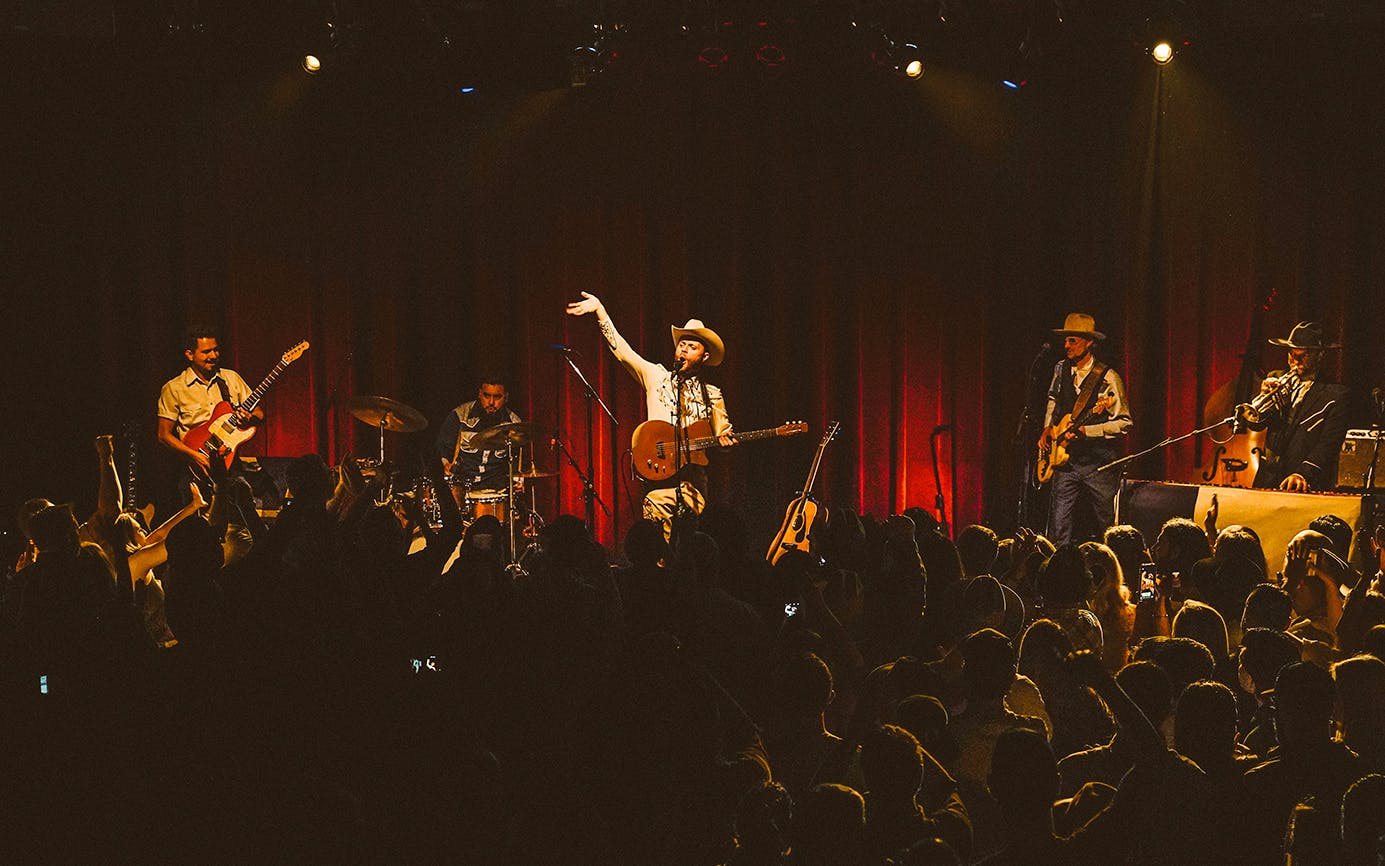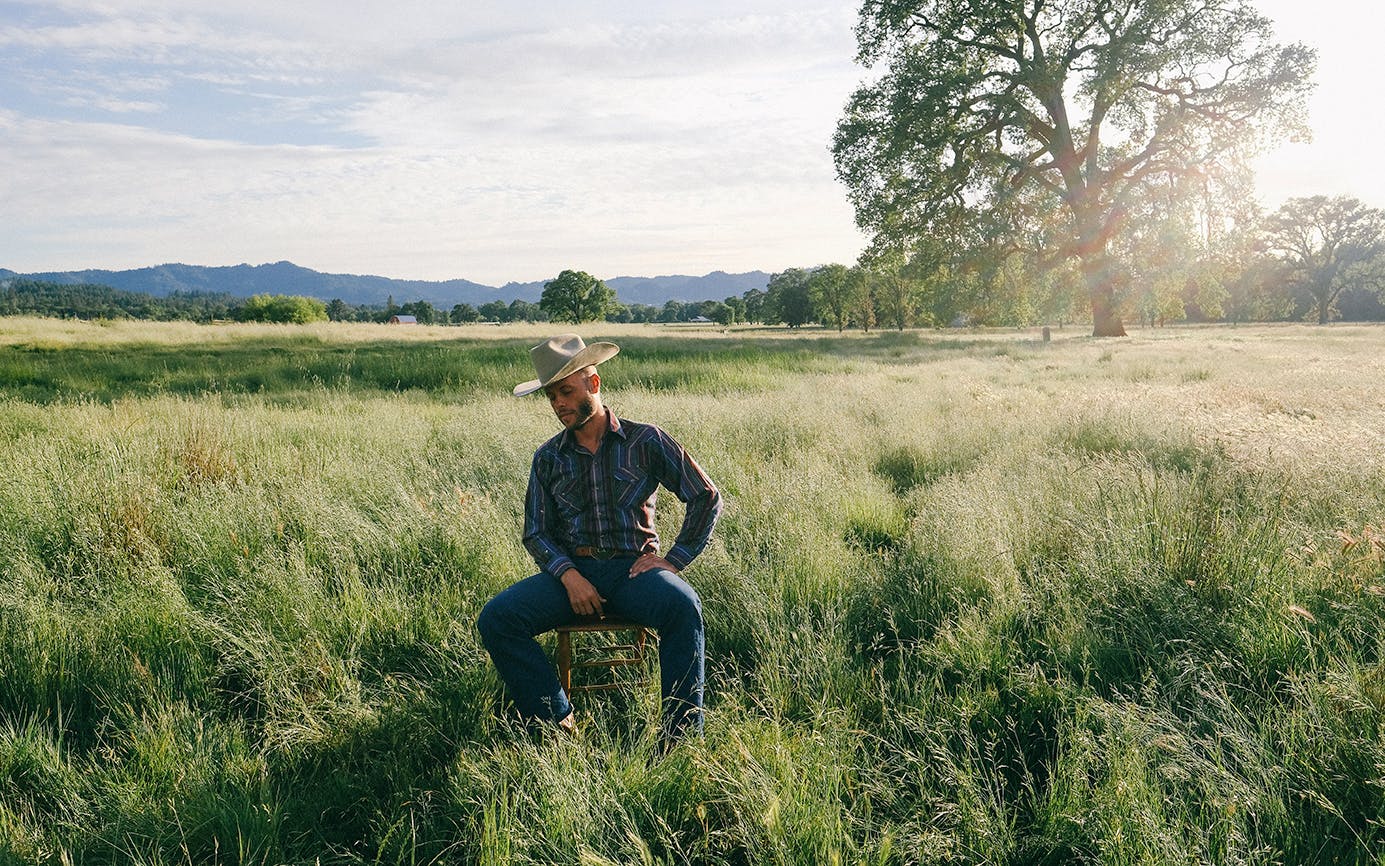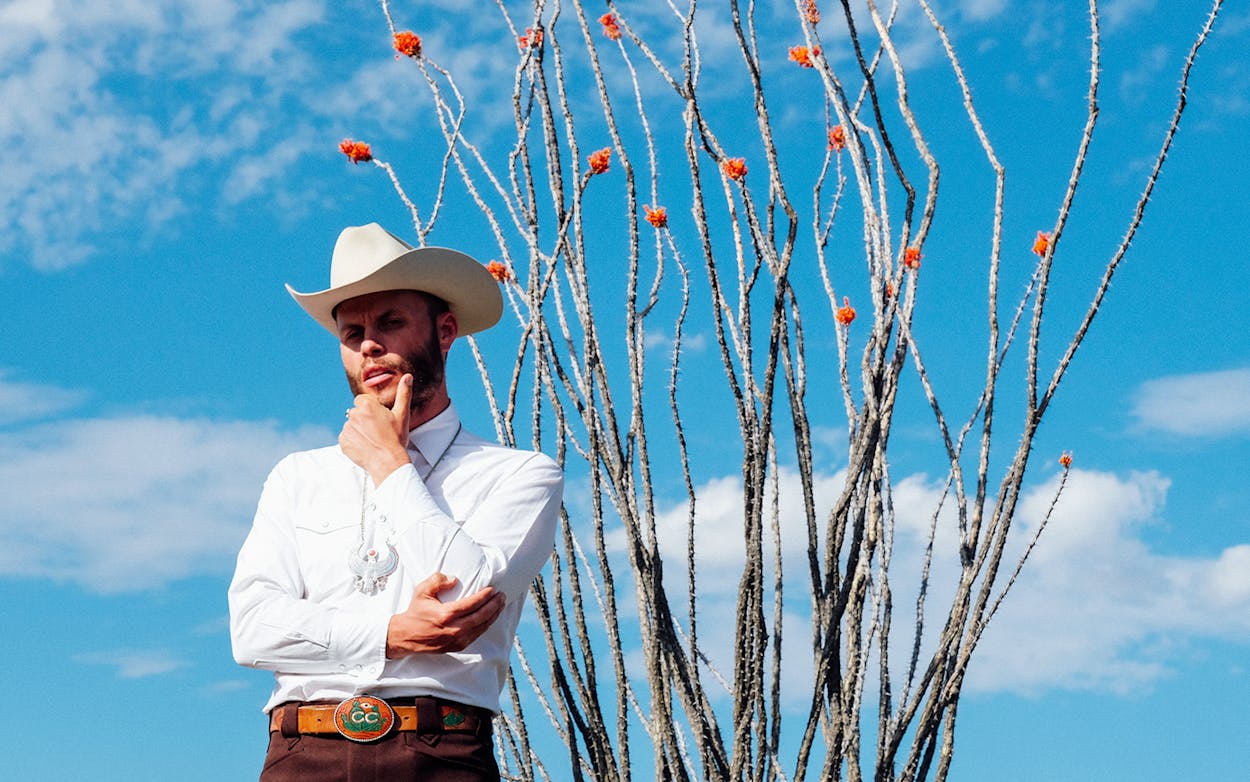For the first time in years, San Benito native Charley Crockett returned home last fall for a look around his old stomping grounds. The country crooner grew up in a rural part of the Rio Grande Valley, a region of Texas he describes “as isolated, unique, and as misunderstood as they come.”
Crockett was raised by his single mother, with the help of his grandmother, in a faded trailer off Old Port Road, outside of Los Fresnos. Though he and his mother relocated to Dallas when he was a teenager, his grandmother mostly resided there until she passed away with cancer, when Crockett was in his early twenties.
On this most recent trip to the Valley, Crockett felt anxious, unsure of what he’d find there now. “I was scared to death to drive by that old trailer,” sighs Crockett, now 35. “I was so worried that none of it was going to be there. I was scared it was going to be some subdivision or condos.” He found the trailer park intact. “The only difference was that the trailer was a little bit new and had a fresh coat of white paint,” he adds.
Even though Crockett doesn’t have family living down in the Valley anymore, he’s constantly trying to return there—either physically or through song. “I think the older you get, the more that you need to remember the place where you’re from,” he says.
On his newest album, The Valley (And Other Biographical Tunes), released last week, Crockett attempts to capture those familiar beginnings in his grandmother’s trailer home—and the endless fields of sugarcane and cantaloupe that surrounded him there—through sparse arrangements and the warm bleed of analog tape. While he’s always been an electrifying performer, The Valley sees Crockett more focused in his songwriting and more nuanced with his vocal approach. It’s a slight drift from his other albums that previously embraced Memphis blues and Cajun folk, but never strays from his ultimate strength: plainspoken storytelling. Crockett’s melding of rootsy country, blue-collar ramblers, and bittersweet honky-tonkers is an especially heartfelt and earnest listen.

Crockett is constantly in songwriting mode, with a back catalog of half-written parts, sketches, and floating one-liners. And though he’s been releasing albums at a prolific clip (five since 2016, counting The Valley), Crockett felt the urgency to record his latest effort this past December, because of having to undergo two critical heart surgeries a few weeks later. Despite management, friends, and family members urging him to wait until after he’d recovered from both procedures, Crockett went for it anyway, in fear of “not knowing what was going to happen on the other side.”
Endless questions, worries, and doubt flooded Crockett’s mind the months before undergoing the knife. “What if I’m not the same post-surgery?” he asked himself. “What if this is the last time I’m able to record these songs?” Writing and recording The Valley put him more at ease, though that wasn’t particularly easy, either. “Everyone said when I was in recovery laid up on a couch, pilled up on meds, everyone kept saying I was going to be so inspired,” says Crockett, who is still healing and slowly began touring again in the spring. “That just wasn’t true. At all. It felt like this weird purgatory state. I was on this medication and the days were blending together.”
Conversely, those early mixes of The Valley’s songs provided him with something he could pour himself into while waiting out his “purgatory state,” as he puts it. And those months of recovery seemed to have resulted in a newfound sense of observation. On the album’s eponymous single, “The Valley,” Crockett provides an uncomplicated and unofficial autobiography of his life, carried by Nathan Fleming’s swells of gorgeous pedal steel guitar. Despite its somber mood, Crockett’s voice is filled with resilience and redemption as he delivers simple, direct lyrics. On lines like “if you ask me where I’m going, I can’t tell ya, ’cause I don’t know, But in my mind I see the valley, you should see the way it glows,” Crockett spins a nostalgic daydream about his borderland roots.
The Valley also revisits Crockett’s past as a street busker on the subways of New York City, and the corners of New Orleans and Memphis. The jangling hand-clapper “Borrowed Time,” a song written with Evan Felker of Turnpike Troubadours, sees Crockett embodying a rambling man: “I want to be free, that’s my only crime.” And on the breezy shuffle “The Way I’m Livin’ (Santa Rosa),” he imbues his present-day tour schedule with references to traveling up and down the West Coast.

Crockett is also particularly adept at creating stirring images with minimal wordplay. On the forlorn “10,000 Acres,” you see him drinking away his sorrows: “I got a dollar in my pocket. It won’t help me much in bringing back your love, but if you’re selling heartache then I’m buying,” he offers. On nimble jaunt “5 More Miles,” he sings with heat: “Call me Joe Christmas, that’s my name. I got this river running through my veins.”
On The Valley, Crockett’s range spans from raspy, quick-rhythmed Appalachia stompers to serene honky-tonk tearjerkers. But what distinguishes him from roots music revivalists is the fact that he isn’t just unfurling traditional tunes—like the sparse banjo-led “9 LB Hammer” or the lonesome “Motel Time Again.” He’s also forging his own piercing ballads and solitary highway hymns, which are informed by his own experiences of leaving home, returning to his roots, and being humbled by the simultaneous terror and thrill of not knowing what lies ahead. “I’ve lived a really rough, rambling life. I’ve said it before, but whatever people read about me, it’s ten times wilder than that,” Crockett says. “[But] sometimes, I don’t need to play at all. Sometimes, I just need to listen.”
- More About:
- Music
- Country Music
- Charley Crockett






